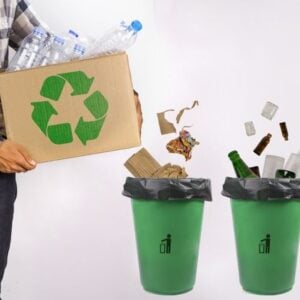Chad has officially joined Africa’s circular economy movement with the launch of its national Circular Economy Roadmap 2025–2035, supported by the African Development Bank’s Circular Economy Facility (ACEF). This roadmap aligns with the country’s “Vision 2030” development plan and aims to shift the national growth model from linear consumption to circular practices that enhance sustainability and economic resilience.
The initiative builds on existing informal recycling practices in cities like N’Djamena, where waste collection and resale have long been driven by necessity. These grassroots efforts are now being formalized and integrated into national policy through a framework that includes governance mechanisms, financing strategies, and measurable targets. The roadmap proposes practical solutions for major national challenges such as food insecurity, high post-harvest losses, limited energy access, and inadequate waste management. Among the proposed measures are composting agricultural waste, producing biogas from animal waste, and reusing wastewater for irrigation.
This strategy is part of a broader regional initiative under the National Circular Economy Roadmaps (NCER), supported by ACEF and the African Circular Economy Alliance (ACEA). The initiative focuses on three pillars: strengthening policy frameworks, supporting circular entrepreneurship, and enhancing regional cooperation. Alongside Chad, countries like Benin, Cameroon, and Ethiopia are also developing tailored circular economy plans.
Chad’s roadmap sets ambitious goals, including a 40% reduction in non-recycled waste by 2035, the creation of over 25,000 green jobs, and increased electricity access through biomass and organic waste recovery. Six sectors are prioritized in the strategy—agri-food, waste, plastics, construction, water, and energy—through 30 targeted initiatives. These include “circular farms” inspired by Benin’s Songhai Center, sustainable construction materials, and youth-led recycling enterprises.
In the capital, N’Djamena, companies like Karo are already implementing circular solutions. Karo has recycled 15 tons of plastic into eco-bricks and is piloting biogas projects in rural areas. Such efforts reflect a growing movement led by entrepreneurs, NGOs, and public institutions, supported by structured governance and coordinated by a dedicated technical committee.
With this roadmap, Chad aims to turn its vulnerabilities—such as climate stress and resource scarcity—into strengths. The country is leveraging the circular economy as a strategic tool for resilience, green growth, and development rooted in local realities.






